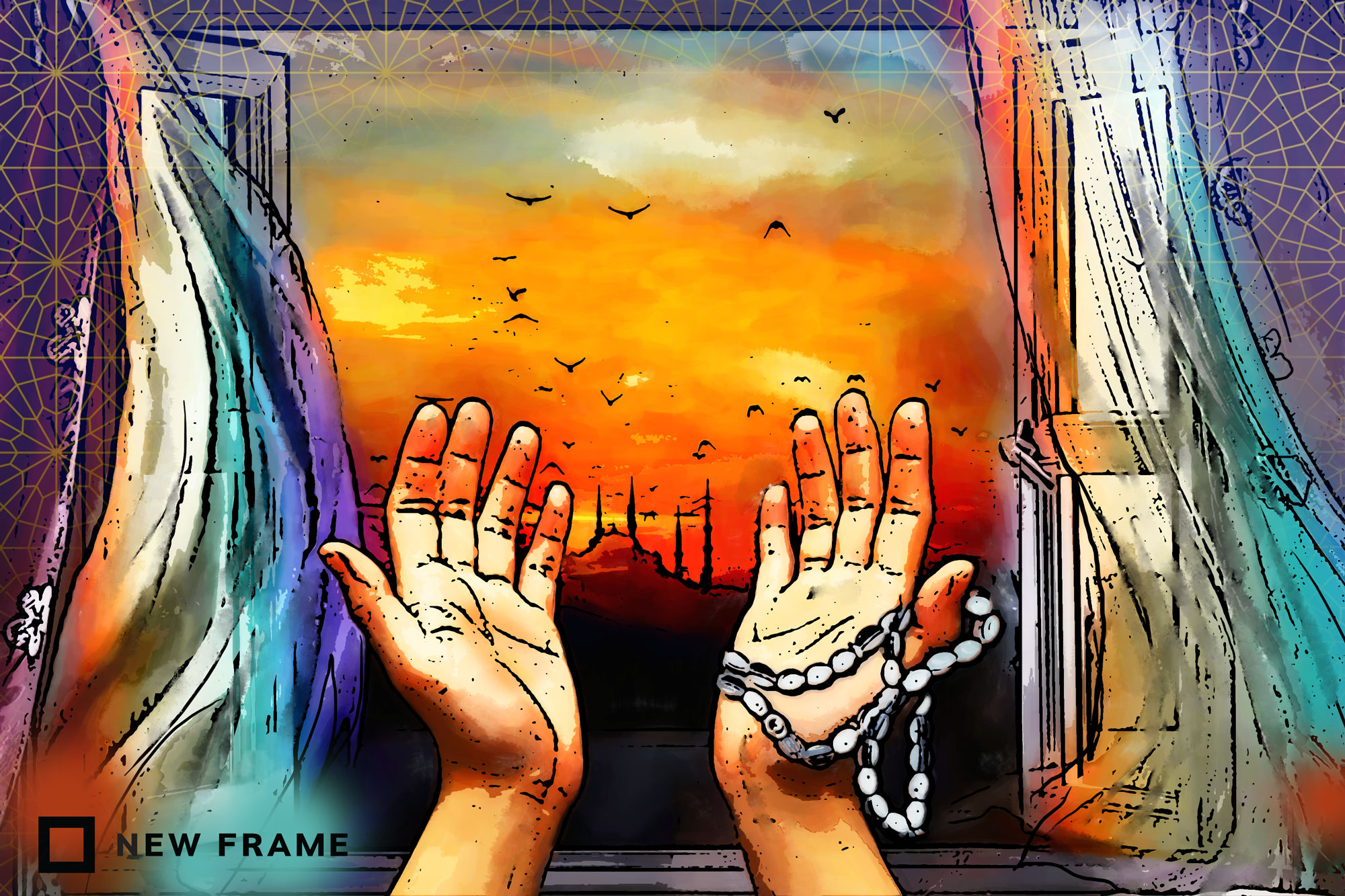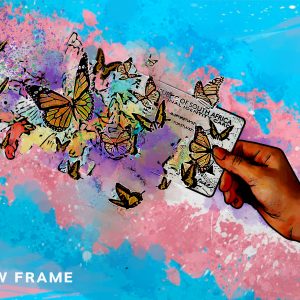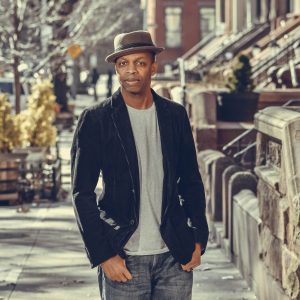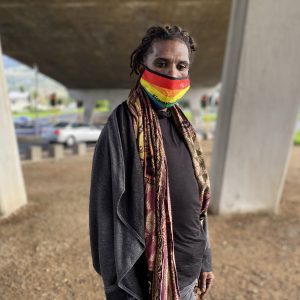The faithful find humanity in Kenya’s queer folk
Viewed as ‘demonic and bedevilled’ by many, queer people across Kenya’s largely conservative coastal region are finding acceptance among a small group of religious leaders.
Author:
7 April 2021

“Honestly?” Sarah Mohamed*, asks rhetorically. Then, lowering her voice, she says: “I couldn’t stand them. I couldn’t stand seeing them. I was among those community members who were thinking, you know, ‘It’s a curse. People are not supposed to do this. They are going to get God’s wrath. They are going to hell. They shouldn’t associate with our children because they might infect them. They might recruit them.’”
Mohamed is an ustadhat – a woman preacher – based in the coastal Kenyan city of Mombasa. Despite being raised in “a moderate Muslim home”, she says her family still “viewed homosexuality as a curse”.
“When I was growing up,” she says, “there was an old man I used to see often. He used to come to our neighbour. We thought it’s not okay. We even thought the neighbour was not a good person because she was associating with this person. So we used to stigmatise even the neighbour because she was associating with him. I could not talk to him, because the mentality is, ‘You talk to them you are going to hell, just like them.’ And who wants to go to hell? So you don’t associate. You just stigmatise them. You treat them like they are not part of the community. And that’s it.”
Related article:
A change in Mohamed’s perception came in 2005, when, while volunteering for an organisation that was providing counselling for drug users, she was introduced to queer people for the first time. The meeting was held in the suburb of Changamwe. “The building was a public toilet converted into an office. I tell you,” she laughs, “the things people do.”
It was here that her colleague at the time introduced her to “the LGBT”.
“There were 10 of them,” she says. “My colleagues and I wanted to know the story behind it: ‘Why are they the way they are?’ So at first, I couldn’t, you know? It was hard for me. Because my judgement was at the highest. It was at 100%. As we were interacting with them – after the 10th session, I think – I started at least talking to them. So that was when I started treating them as humans. Not as humans really, but really just tolerating them.”
‘We demystify the myths’
Her tolerance slowly morphed into an acceptance so strong that the 48-year-old is now an active member of queer rights organisation Persons Marginalised and Aggrieved in Kenya (Pema Kenya). She is part of their team involved in strategic faith engagements. The team is made up of Muslim and Christian religious leaders and was formed with the aim of finding ways to ensure broader acceptance of LGBTQIA+ people. “We give people the correct information about the LGBT community,” Mohamed says. “We demystify the myths. We give them facts. In our communities, you know, most of the time we deal with myths.”
Section 162 of Kenya’s Penal Code, inherited from British colonial rule, punishes “carnal knowledge against the order of nature” with 14 years’ imprisonment.
In May 2019, in what was described as “a blow for human rights”, the Kenya high court ruled that laws targeting LGBTQIA+ people do not breach the country’s Constitution.
A 2015 report by Human Rights Watch found that “rhetoric vilifying LGBTQIA+ people, much of it by religious leaders, is particularly pronounced on the coast, and shapes public perceptions”.
The report added: “Politicians and extremist religious leaders seek to bolster their relevance by proposing homophobic legislation and preaching hatred against gay Kenyans. Media houses engage in sensational reporting on ‘scandals’, sometimes entirely fabricated, involving LGBT people. Although many LGBT people draw on support from friends and family and carve out spaces in which they can live in relative safety, the risk of violence remains present.”
Related article:
Ishmael Bahati is the executive director and cofounder of Pema Kenya. Bahati says the organisation set about engaging with faith leaders in 2010, after a spate of mob attacks on queer people spurred on by two religious leaders who promised to “flush out gays”.
“That is how we began engaging with faith leaders. At that time, it was a new thing for us. It was like Covid for us,” Bahati laughs. “Because we had never thought of something like that: working with faith leaders. No one had planned to work around that.”
Bahati concedes that engaging the country’s faith leaders on issues related to gender identity and sexuality is “the most difficult part of my work that I have ever done. And the reason why I say this is because the LGBT community has been hurt a lot in the faith spaces. And there is a lot of fear and rejection of anything to do with faith.”
Praying at home
The day Hunnielle Wafula* was born, there was the usual excitement among the villagers about the new birth. Villagers, “with gifts and everything”, made their way to the newborn’s family home “to see this kid; if it’s a man or it’s a woman”.
But Wafula was born intersex. “So, you know, the bad rumours are going faster than the good rumours. So, when you are different in this village, it’s like everyone in this community knows that in that house there is a person who is not normal. There is a curse in that house. So the community starts ganging up on you. The village elders wanting to sacrifice you, you know?” says Wafula.
Wafula, who identifies as non-binary, remembers their mother telling them how the community “wanted to take me in a tree and leave me there until I die. Because I’m a curse. Others wanted to take me to the ocean and leave me there to drown.”
Related article:
Born Muslim, Wafula says there was little solace to be found in institutions of faith. “I remember when I was going to madrassa, I was wearing clothes like a girl. But then I came to quit madrassa after feeling like I don’t want to wear women’s clothes. I don’t feel comfortable wearing women’s clothes because I feel I am not a woman. You know? I left madrassa … because I said, ‘No, I can’t be here where I am not safe.’”
Attending services at the mosque, before the Friday prayer, is something Wafula also no longer does. “I used to go to the mosque … like a woman,” they say. “But our faith is telling us ‘You can’t stand next to women if you feel like you love this woman.’ So that was the time I stopped going to the mosque. Because I have feelings for women … Ya, so now I am praying at home.”
A changed sheikh
Ahmed Kimani* is a sheikh based in Mombasa. Describing himself as “a moderate Muslim leader”, Kimani says he was raised to believe LGBTQIA+ people were “demonic and bedevilled”.
“These were people who are not to be entertained in the community – especially not in an African community,” Kimani says.
His change in position came when a fellow faith leader told him that “we need to change our perceptions as religious leaders. We need to accept these people as human beings – that, first and foremost, they are human beings.”
About a decade later, Kimani – as a member of Pema Kenya’s team on strategic faith engagements – now engages with religious leaders across Kenya’s coastal region on the need to be more inclusive of queer people.
The outbreak of Covid-19 has, however, interfered with the group’s work. Ibrahim says that the fallout of the pandemic has not only hampered opportunities for the team to engage with religious leaders in the flesh but, because it has affected the country’s LGBTQIA+ communities more severely, the team has had to change tack somewhat. “We learned some time back that they were marginalised even from getting to some health facilities,” Kimani says.
Related article:
“We came together and initiated some … forums and talks for the [LGBTQIA+] people and religious leaders to understand the situation,” Kimani says. “How [do] we deal with Covid but also, at the same time … empower religious leaders so that they do not divide communities?”
Because a national lockdown put a limit on large religious gatherings, the group of faith leaders would disseminate their messages in sermons delivered via WhatsApp. They also went a more traditional route by carrying the message of inclusivity door to door.
“We would tell people that you cannot diminish them, eh? What we want all these people to do is accept them the way they are. And for them to have a safe space to at least not be interfered with. So [the] message [is]: ‘Please accept these people and guard them so that they are not harmed or terrorised.’”
Phone counselling
The group also offered telephonic counselling to the region’s queer folk – Wafula being one of them.
“Actually just talking to them – people like [Mohamed] and [Kimani] – I feel good,” they say. “Because at least I feel like there are people who understand me. And I feel like there are religious leaders who I can talk to … like … I’m just human. If you are a minority or something, there are religious leaders sometimes who hate you without … reason. So for me, I feel good. I feel loved.”
The team might be enjoying some success but, Kimani concedes, they still face significant resistance from more hardline quarters.
Related article:
“Some of these religious leaders … are really, really hostile. But it’s a starting journey,” he says.
Mohamed, too, admits that there are still difficulties. “I’m still struggling with the pronouns. Can you imagine that?” she laughs. “They want to be called ‘she’ or ‘he’ or ‘they’. Sometimes it’s confusing for me. But then I apologise if I call them by the wrong pronoun. And to be on the safe side, I call them by their names.”
“But it’s a journey,” she says. “And we are still moving on.”
Looking back at her journey of many years as a faith leader actively pushing for the acceptance of queer people, Mohamed says: “I tell you, I’m impressed with [myself]. Compared with where I was, I think I can pull my collar up. I used to look down on them, but Alhamdulillah [praise be to God] I am here now. I now am looking at them as people. And do you know how you treat people? With humanity. That’s how.”
* Names have been changed to protect identities.





